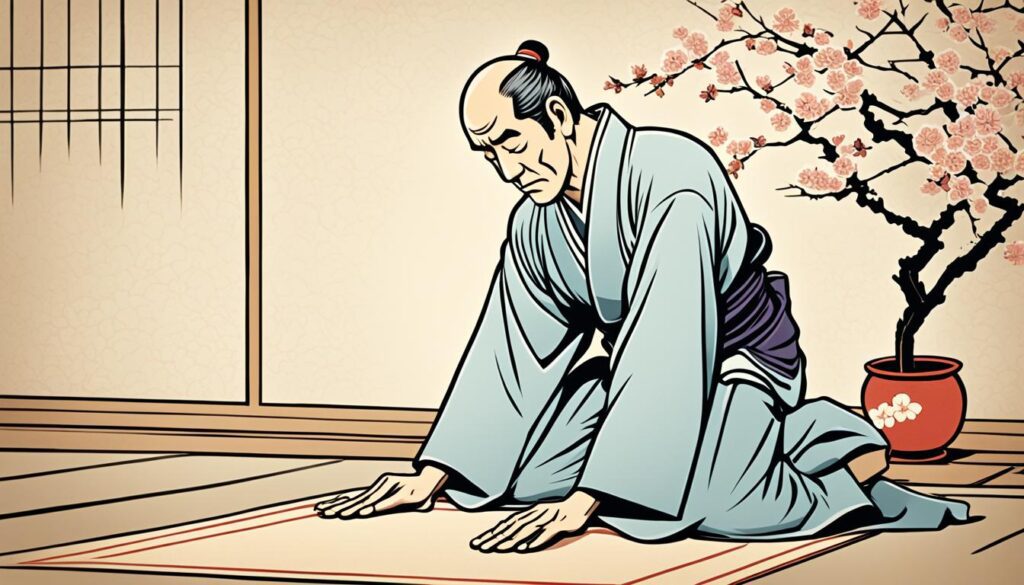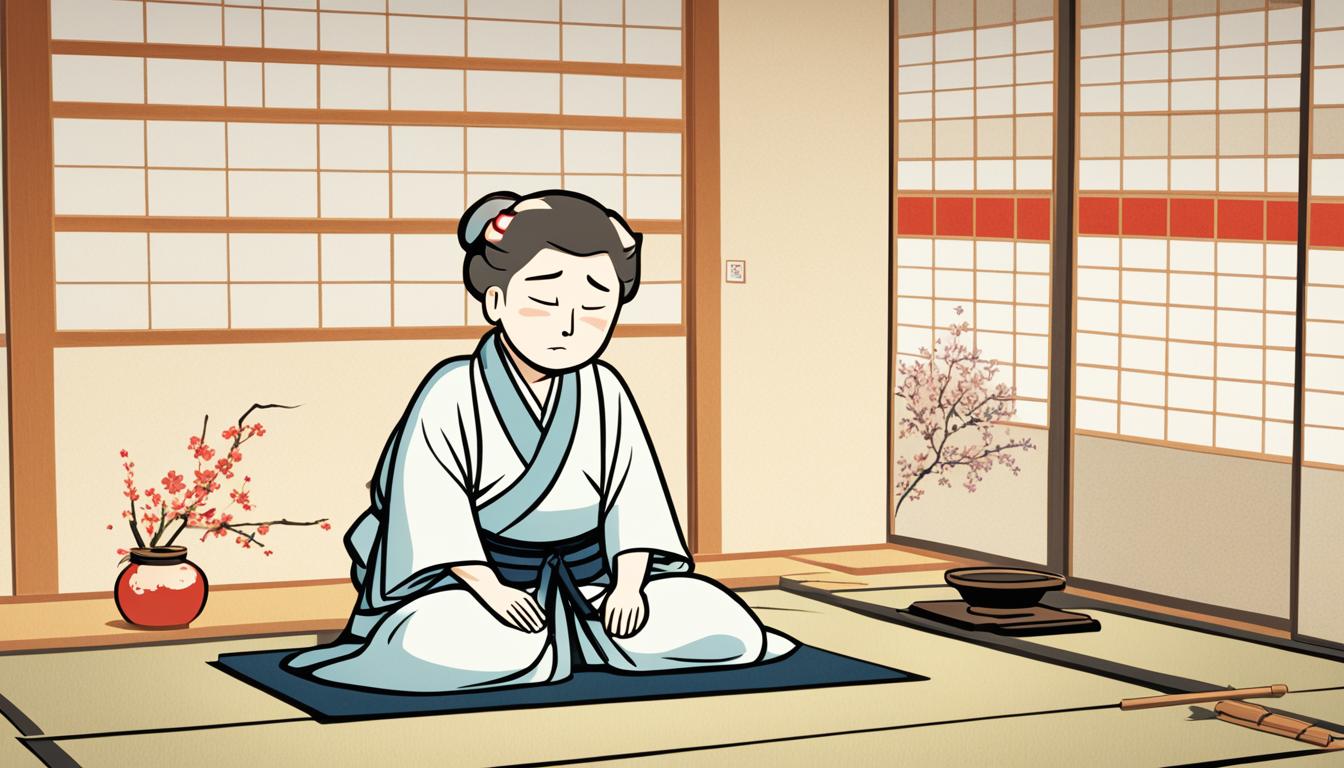In Japanese culture, apologizing is about more than just admitting a mistake. It’s a key part of the culture that shows respect and helps maintain harmony. There are many ways to apologize in Japanese, and the choice of words depends on the level of formality and the relationship between the people involved.
Understanding the proper phrases and expressions for apologizing in Japanese is important for connecting with others and showing respect for their culture.
In this article, we will explore different ways to say “I’m sorry” in Japanese, Japanese apology phrases, and how to express apologies in Japanese in various contexts.
Casual Ways to Say Sorry in Japanese
In casual settings, there are several phrases you can use to apologize in Japanese. Common phrases include “ごめんなさい” (gomen nasai) and “すみません” (sumimasen), which can be used in both formal and informal situations. Other casual apologies include “わりぃ” (warii) and “悪い” (warui), which are more colloquial and should be used with close friends or peers. It’s important to use the appropriate level of formality based on the situation and your relationship with the person you’re apologizing to.
When it comes to casual apologies, it’s essential to understand the context and choose the appropriate phrase accordingly. Here are some examples:
| Phrase | Meaning |
|---|---|
| “ごめんなさい” | I’m sorry / Excuse me |
| “すみません” | I’m sorry / Excuse me |
| “わりぃ” | My bad / Sorry |
| “悪い” | Sorry (colloquial) |
In casual situations, these phrases can help you express apologies and maintain a friendly tone. Remember to consider the formality and your relationship with the person you’re addressing to ensure appropriateness.
Apologizing in Japanese doesn’t always have to be formal. Understanding casual apologies is valuable for connecting with friends and peers in a more relaxed manner.
Formal Ways to Say Sorry in Japanese

In formal settings, it is crucial to use the appropriate level of formality when apologizing in Japanese. Formal apologies demonstrate a deeper level of remorse and respect. Here are two common phrases for offering formal apologies:
1. 申し訳ございません (Moushiwake gozaimasen)
This phrase is a formal way to say “I’m sorry” in Japanese. It is often used when apologizing to superiors, authority figures, or in professional settings. Using this phrase shows sincerity and an understanding of the seriousness of the situation.
2. お許しください (O yurushi kudasai)
This phrase translates to “Please forgive me” in Japanese. It conveys a sense of regret and a request for forgiveness. It is appropriate to use this phrase when seeking forgiveness from someone of higher status or authority.
By using these formal apology phrases, you can effectively show your remorse and respect in formal situations. Remember to adjust your level of formality based on the person you are apologizing to and the context of the situation.
Image provides a visual representation related to formal apologies in Japanese.
Apologizing for Inconveniencing Others
In Japan, there is a strong emphasis on not inconveniencing others. When you need to apologize for inconveniencing someone, there are specific phrases you can use to convey your regret and respect.
One commonly used phrase is “ご迷惑をおかけして申し訳ございません” (go meiwaku o okake shite moushi wake gozaimasen), which translates to “I apologize for causing you trouble.” This phrase expresses a sincere apology and acknowledges the inconvenience you have caused.
Another phrase that can be used is “失礼します” (shitsurei shimasu), which literally means “I am being rude.” This phrase is often used to apologize when entering someone’s space or interrupting them, and it conveys a sense of respect and remorse for the inconvenience caused.
When using these phrases, it is important to consider the level of formality and use the appropriate phrase based on the situation and your relationship with the person you are apologizing to.
Apologizing for Mistakes
When you make a mistake and need to apologize, there are formal and informal phrases you can use in Japanese. Formal apologies include phrases like 申し訳ございません (moushi wake gozaimasen) and 謝罪いたします (shazai itashimasu), which convey a sincere apology for the mistake. Informal apologies include phrases like ごめんなさい (gomen nasai) and 悪い (warui), which can be used in casual settings among friends or peers.
| Formal Apologies | Informal Apologies |
|---|---|
| 申し訳ございません (moushi wake gozaimasen) Literal translation: I deeply apologize |
ごめんなさい (gomen nasai) Literal translation: I’m sorry |
| 謝罪いたします (shazai itashimasu) Literal translation: I will apologize |
悪い (warui) Literal translation: My bad |
Alternative Ways to Say Sorry in Japanese: Specific Cases
In addition to the more common phrases for apologizing in Japanese, there are specific phrases that can be used in certain situations. Understanding and using these phrases correctly can help you navigate different scenarios and show respect for the cultural norms in Japan.
When you need to apologize for intruding on someone’s space, you can use the phrase “お邪魔します” (o jama shimasu). This phrase conveys the message that you are sorry for inconveniencing or disturbing someone and shows your awareness of their personal boundaries.
Another specific phrase is “空気を読みます” (kuuki o yomu), which means “to read the atmosphere.” This phrase is used to apologize for not understanding or acknowledging the mood or atmosphere of a situation, causing discomfort or tension. Using this phrase shows your awareness of the social dynamics and your desire to rectify any discomfort you might have caused.
By learning and utilizing these specific phrases, you can enhance your ability to apologize in Japanese, demonstrating your understanding of cultural nuances and your respect for others. These alternative ways of apologizing in specific situations can help you build stronger connections and avoid potential misunderstandings.

